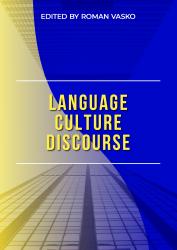Cognitive and rhetoric modelling of political metadiscourse: a comparative study of B. Johnson's and V. Zelenskyy's addresses to the UK and Ukrainian parliaments correspondingly
Keywords:
Language, culture, discourse, cognitive-discursive approach, complex synergistic continuumAbstract
The research indicates the interrelation between such terms as "political discourse", "mass-media discourse", "rhetoric discourse" and "public speeches". The article explains and compares the stages and the schemes of English and Ukrainian political metadiscourse formation; consequently, it identifies "cognitive and rhetoric model of political (meta)discourse" as multilevel scheme which represents both "intrablock and interblock relations", realized vertically and horizontally correspondingly. It distinguishes two stages of cognitive and rhetoric modelling: a cognitive and a rhetoric blocks. Notably, a cognitive block comprises a static constituent, which marks the chain of such cognitive operations as intention, target and language means selection, achieved through the prism of metapragmatic awareness with its mental, emotional and social factors; and a dynamic one represents the choice of cognitive, stylistic and metadiscourse devices. The article confirms that the strategic use of those devices results in a well-built persuasive speech which evokes co-thinking, co-feeling and co-acting, causing that rhetoric effect.

LANGUAGE. CULTURE. DISCOURSE
Downloads
Pages
Published
Categories
License

This work is licensed under a Creative Commons Attribution-NonCommercial-NoDerivatives 4.0 International License.

